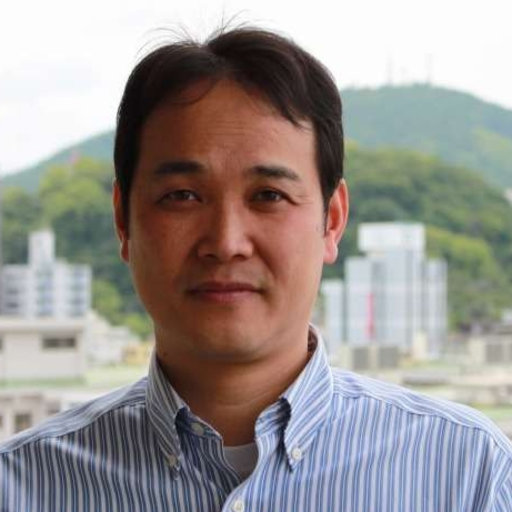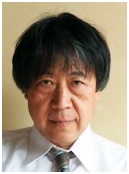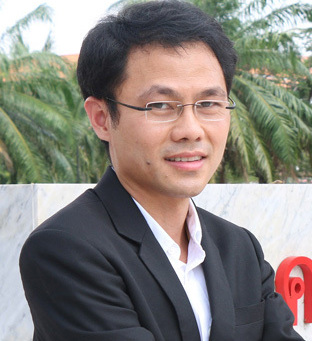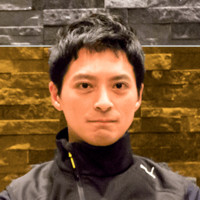



|
Hiroaki Ogata Professor, Academic Center for Computing and Media Studies, and the Graduate School of Informatics, Kyoto University Title of the talk : Connecting formal and informal learning through learning evidence and analytics framework Abstract : The multi-disciplinary research approach of Learning Analytics (LA) has been providing methods to understand learning logs collected during varied teaching-learning activities and potentially enrich such experiences. However, LA is mainly focusing on formal learning in classrooms. This talk will explain how technology can help to entwine formal and informal learning and to extract evidence of effective teaching-learning practices by applying LA and developing novel techniques. It focuses discussions on realizing a technology enhanced evidence-based education and learning (TEEL) system. This talk will propose the Learning Evidence Analytics Framework (LEAF) and draw a research roadmap of an educational big data driven evidence-based education system. Teachers can refine their instructional practices, learners can enhance learning experiences and researchers can study the dynamics of the teaching-learning process with it. While LA platforms gather and analysis the data, there is the lack of a specific design framework to capture the technology enhanced teaching-learning practices. Finally, this talk will present the research challenges to smart evidence-based education. Research Interests : Learning Analytics, Educational data science, evidence-driven education Biography : Hiroaki Ogata is a Professor at the Academic Center for Computing and Media Studies, and the Graduate School of Informatics, Kyoto University, Japan. His research includes Computer Supported Ubiquitous and Mobile Learning, CSCL, CSCW, CALL, and Learning Analytics. He has published more than 300 peer-reviewed papers including SSCI Journals and international conferences. He has received several Best Paper Award and gave keynote lectures in several conferences. |

|
Itsuo Kumazawa Laboratory for Future Interdisciplinary Research of Science and Technology, Institute of Innovative Research Tokyo Institute of Technology Title of the talk : Evaluation of deep learning techniques for detecting lesion areas in MRI and X ray images Abstract : We have been applying various techniques of deep learning to MRI and X ray images and examined if the prostate cancers in MRI or urinary tract stones in ordinary X-ray images (KUB : kidney ureter bladder) are automatically detected by the deep learning techniques. This paper reports some latest evaluation of these techniques. The models of deep learning we have applied are U-net and PSP-net whose structures are modified to meet with our own problems. In these models, we have applied the idea of RES-net to improve the optimization efficiency of the learning algorithms. The performance of PSP-net trained separately for each organ is compared with the one trained uniformly for the whole area and the former is shown to perform better. The evaluation results imply the effectiveness of deep learning techniques on medical image diagnosis. Although the success rate is still not high enough, we believe it would be improved by continuing the efforts and these techniques would reduce the labor cost of human inspection in future. Research Interests : Artificial Neural Networks, Human Interface, Pattern Recognition, and Image Processing Biography : Itsuo Kumazawa received Bachelor of Engineering in Electrical and Electronic Engineering from Tokyo Institute of Technology (TIT) in 1981, Master of Engineering, and Doctor of Engineering in Computer Science from Tokyo Institute of Technology (TIT) in 1983, and 1986, respectively. In 1986, he started his academic career as Assistant Professor in TIT, where he became Associate Professor in 1990. Currently, he is a Professor in the Institute of Innovative Research at TIT. Dr. Kumazawa has published research papers in the fields of Artificial Neural Networks, Human Interface, Pattern Recognition, and Image Processing. He received grants from JSPS, JST and a number of private funds. He is a member of IEICE, IPSJ, ITE and IEEE and received awards from these academic societies such as the “best demo award” in the IEEE virtual reality conference in 2013. He has been serving as a vice president of The Institute of Image Information and Television Engineers since 2018. |

|
Charturong Tantibundhit Associate Professor (Department of Electrical and Computer Engineering), Thammasat University Title of the talk : Artificial Intelligence for Medical Screening: Research and Innovation in Low-resource Settings Abstract : Artificial Intelligence (AI) has been applied to a lot of medical applications especially for disease screening and diagnosis. One objective is to support medical staffs especially in developing countries, where medical experts and resources are very limited. As a result, patients can have medical screening and can receive medical treatment on time reducing disability and loss of life. Our research group, emphasized in AI in medicine, have collaborated on interdisciplinary research and development of medical innovations using resources available in Thailand. Our ultimate goal is to facilitate physicians, public health officers, and people in medical screening and diagnosis, focusing on the major diseases, e.g., stroke, Alzheimer’s, learning disability, diabetic retinopathy, aged-macular degeneration, glaucoma, cytomegalovirus retinitis, cervical cancer, skin cancer, lung cancer, and tuberculosis that are affecting majority people around the world. Based on our continuous dedication for more than 10 years, we have developed a lot of innovative medical products with world class quality. These innovations have high impacts resulting in the better quality of life of Thai people. Our research work and innovations have been perceived as one of the best research groups in Thailand as shown by awards received nationally and internationally. Moreover, our research group is only one that won the Grand Prize in International Exhibition of Inventions of Geneva, Switzerland recognized as the world’s largest exhibition of inventions. Finally, our research work and innovations have been published in the world leading international journals. Research Interests : Speech Enhancement, Tonal-speech Perception, Signal Processing for Cochlear Implants, Pattern Recognition and Machine Learning Biography : CHARTURONG TANTIBUNDHIT received the B.E. degree in electrical engineering from Kasetsart University, Bangkok, Thailand, in 1996, and the M.S. degree in information science and Ph.D. degree in electrical engineering from the University of Pittsburgh, Pittsburgh, PA, USA, in 2001 and 2006, respectively. Since 2006, he has been with Thammasat University, Thailand, where he is currently an Associate Professor with the Department of Electrical and Computer Engineering and the Head of the Speech and Language Technology Cluster, Center of Excellence in Intelligence Informatics, Speech and Language Technology, and Service Innovation. From 2007 to 2008, he was a Post-Doctoral Researcher with the Signal Processing and Speech Communication Laboratory, Graz University of Technology, Graz, Austria. He was an IEEE ICASSP Student Paper Contest Winner in 2006. He led a team to win the Grand Prix of the 45th International Exhibition of Inventions of Geneva in 2017. His research interests include handcrafted machine learning and deep learning in medicine, biomedical signal processing, and speech processing. |

|
Ryota Yamanaka Senior Solutions Consultant (Big Data & Analytics), Oracle Corporation Thailand Title of the talk : Graph Database for AI Abstract : Graph database is one of the emerging database management systems, whose data model is based on mathematical graph, consists of nodes and edges. Because of its capability to represent complex data, graph database is expected to become a new data management platform in AI fields. In machine learning, since graph data is a rich data source to train predictive models, new methods are recently proposed to take graph data as input of machine learning. Graph database provides graph data for such algorithms as well as generates graph-based features for conventional algorithms. In semantic web, more information has become available in the form of knowledge graphs. Graph database is suitable to populate such graph data keeping its semantic information, and it enables us to run high-response queries as well as graph-based algorithms to analyze the data. In this talk, I will present the introduction of graph database and its usage in AI systems. I will also discuss its actual use cases from industrial perspective. Research Interests : DNA sequence analysis and its reproducible platform, Network analysis and semantic technologies. Biography : Dr. Ryota Yamanaka is a senior solutions consultant in big data & analytics at Oracle Corporation Thailand. He received his bachelor’s degree in computer science from Tokyo Institute of Technology (2007), his master’s degree in bioinformatics from King's College London (2011), and his PhD in genome science from The University of Tokyo (2015). He also worked as a database consultant for Oracle Corporation Japan, during 2007 - 2010. His interest includes bioinformatics, database, and semantic web. |